June 29, 2021
June 25, 2021
Gen Z reject ‘right to work from home’ proposal
June 25, 2021
UK employees working £4.2 billion unpaid overtime every week
by Jayne Smith • Flexible working, News, Working lives
 The amount of unpaid overtime that workers around the world are doing has soared in the past year; unpaid overtime in the UK has steadily risen from six hours in 2019 to seven hours in 2020 in the advent of COVID-19, to almost eight hours in 2021, claims a new study by the ADP Research Institute, People at Work 2021: A Global Workforce View. (more…)
The amount of unpaid overtime that workers around the world are doing has soared in the past year; unpaid overtime in the UK has steadily risen from six hours in 2019 to seven hours in 2020 in the advent of COVID-19, to almost eight hours in 2021, claims a new study by the ADP Research Institute, People at Work 2021: A Global Workforce View. (more…)
June 24, 2021
Three quarters of people returning to the office are actively seeking new ways to travel
by Jayne Smith • Environment, News, Wellbeing
 The commute as we knew it may be gone for good, claims new research conducted by DASH Rides. DASH and Sapio Research surveyed over 2,000 city-dwelling, full-time workers, who used to work primarily in the office and now work primarily at home and discovered that three quarters of those returning to the office will be actively avoiding public transport or seeking new ways to travel. (more…)
The commute as we knew it may be gone for good, claims new research conducted by DASH Rides. DASH and Sapio Research surveyed over 2,000 city-dwelling, full-time workers, who used to work primarily in the office and now work primarily at home and discovered that three quarters of those returning to the office will be actively avoiding public transport or seeking new ways to travel. (more…)
June 23, 2021
‘WFH paranoia’: Half of UK workers send emails late at night or early morning
by Jayne Smith • Flexible working, News, Working lives
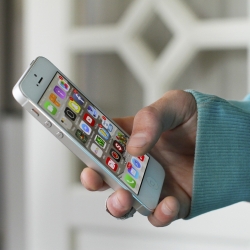 One-in-five (20 percent) UK workers now have their work instant messaging app on their personal mobile phone, as WFH paranoia sets in, according to new research by Furniture At Work. (more…)
One-in-five (20 percent) UK workers now have their work instant messaging app on their personal mobile phone, as WFH paranoia sets in, according to new research by Furniture At Work. (more…)
June 22, 2021
Winning the war for talent in the post-pandemic world
by Jayne Smith • Flexible working, News, Working lives
 The Future Forum, a consortium launched by Slack Technologies, Inc., has released a new study that unpacks how 15 months of pandemic work has shifted employee expectations. (more…)
The Future Forum, a consortium launched by Slack Technologies, Inc., has released a new study that unpacks how 15 months of pandemic work has shifted employee expectations. (more…)
June 18, 2021
Cities could be more important post-pandemic, not less, suggests report
by Neil Franklin • Cities, Flexible working, News
 Paradoxically, more in-person work environments and the concentration of jobs in cities could be a medium- to long-term impact of the pandemic’s shift to remote working, suggests Citi GPS Technology at Work: The Coming of the Post-Production Society, a report produced by Citi and the Oxford Martin School at the University of Oxford. The report cites the automation of manufacturing and clerical tasks alongside the potential for professional services jobs that can be done remotely to be done cheaper overseas as the start of a foundational shift in developed economies. The future of work in these countries, it suggests, could be based largely on innovation, exploration and creative thinking which require face-to-face interaction and geographic proximity. (more…)
Paradoxically, more in-person work environments and the concentration of jobs in cities could be a medium- to long-term impact of the pandemic’s shift to remote working, suggests Citi GPS Technology at Work: The Coming of the Post-Production Society, a report produced by Citi and the Oxford Martin School at the University of Oxford. The report cites the automation of manufacturing and clerical tasks alongside the potential for professional services jobs that can be done remotely to be done cheaper overseas as the start of a foundational shift in developed economies. The future of work in these countries, it suggests, could be based largely on innovation, exploration and creative thinking which require face-to-face interaction and geographic proximity. (more…)
June 18, 2021
Demand for Facilities Management professionals continues to rise
by Jayne Smith • Facilities management, News, Working lives
 The latest RICS UK Facilities Management Survey results suggest a greater demand for services across all sectors, apart from retail, with FM employment opportunities therefore increasing. Furthermore, for the first time since the COVID-19 crisis swept the world last year, profit margins in the sector are expected to rise. (more…)
The latest RICS UK Facilities Management Survey results suggest a greater demand for services across all sectors, apart from retail, with FM employment opportunities therefore increasing. Furthermore, for the first time since the COVID-19 crisis swept the world last year, profit margins in the sector are expected to rise. (more…)








 Over the past year, organisations experienced an increase in problems related to finding information, resulting in greater reliance on knowledge and information management tools than in previous years, according to a new survey by
Over the past year, organisations experienced an increase in problems related to finding information, resulting in greater reliance on knowledge and information management tools than in previous years, according to a new survey by 
 Amid news that the UK government is mulling plans to grant Brits the right to work from home permanently, a new
Amid news that the UK government is mulling plans to grant Brits the right to work from home permanently, a new 

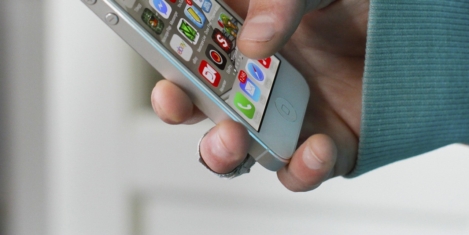

 The significant shift to homeworking as a result of the COVID-19 pandemic has exposed deep differences in job quality across the Scottish workforce, according to
The significant shift to homeworking as a result of the COVID-19 pandemic has exposed deep differences in job quality across the Scottish workforce, according to 

 New polling in a
New polling in a 
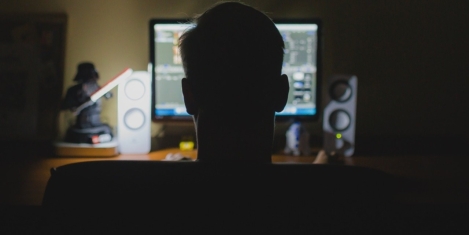
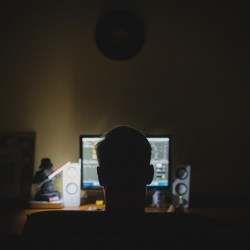 Research from
Research from 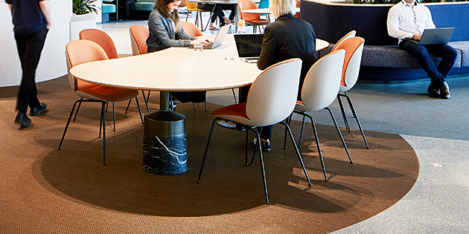
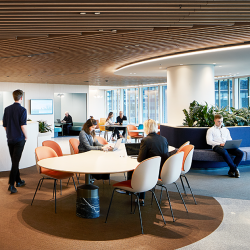 More than half (52 percent) of global companies anticipate a return to the office in earnest by the end of Q3 2021, according to new research by
More than half (52 percent) of global companies anticipate a return to the office in earnest by the end of Q3 2021, according to new research by 








